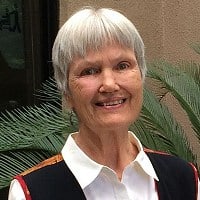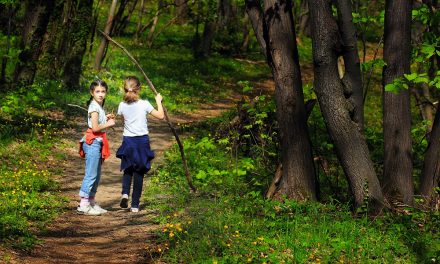Nicknamed Aspirin, the camp nurse
liked to hang out in the lodge kitchen
up to her elbows in potato salad,
wielding a wicked blade,
slapping hamburger patties
as if they had names.
Counselors gathered in the lodge
after they tucked campers into bedrolls,
heard a few prayers, wiped
a few homesick tears. The young women
wound down from a long day of herding
small girls through outdoor fun.
One evening the 20-year-olds
entered the kitchen giggling,
dangled a rattlesnake—headless, with buttons—
in front of the cook. They asked her
to cook it for them, didn’t count
on her big-city ways: eyes rolled back
in her head as she crashed to the floor.
Aspirin glared at the girls, revived the cook,
helped her out to her cabin, to bed. Returned
to the kitchen to dress down the counselors.
Shocked out of their laughter, they stood
shuffling from foot to foot.
Old enough to wag her finger and scold,
young enough to share the adventure,
Aspirin sent the girls out to skin and clean
the snake, found a big frying pan.
Late that night, swearing secrecy, they all sat
in front of a fire, washed down golden fried
rattlesnake rings with Pepsis and ghost stories.
About the Author: Patricia Wellingham-Jones
 Patricia Wellingham-Jones grew up in a small New Jersey town and has lived, by choice, in little places much of her life. For the past few decades it’s been beside a creek in northern California. She is a widely published retired RN, former psychology researcher and writer/editor. She has a special interest in healing writing, with poems recently in The Widow’s Handbook (Kent State University Press). Chapbooks include Don’t Turn Away: poems about breast cancer, End-Cycle: poems about caregiving, Apple Blossoms at Eye Level, Voices on the Land and Hormone Stew.
Patricia Wellingham-Jones grew up in a small New Jersey town and has lived, by choice, in little places much of her life. For the past few decades it’s been beside a creek in northern California. She is a widely published retired RN, former psychology researcher and writer/editor. She has a special interest in healing writing, with poems recently in The Widow’s Handbook (Kent State University Press). Chapbooks include Don’t Turn Away: poems about breast cancer, End-Cycle: poems about caregiving, Apple Blossoms at Eye Level, Voices on the Land and Hormone Stew.





